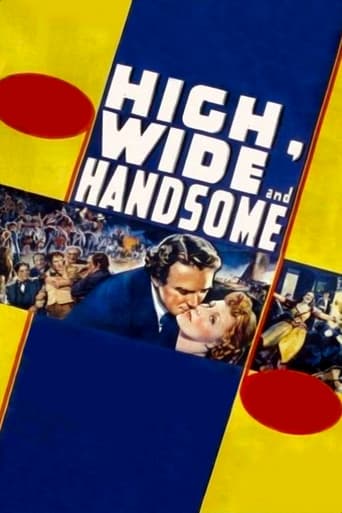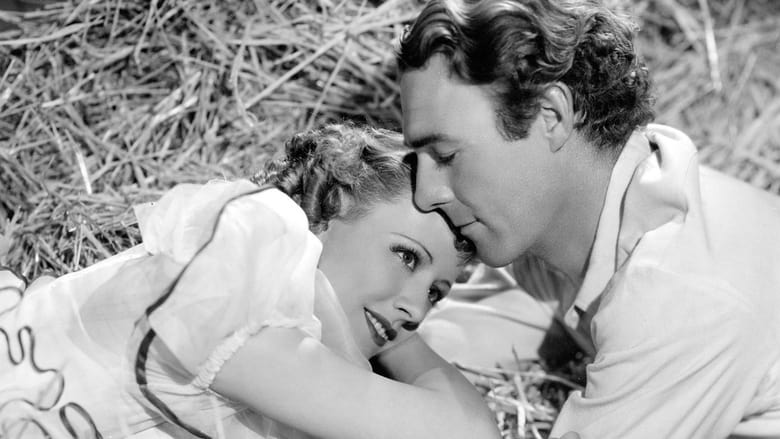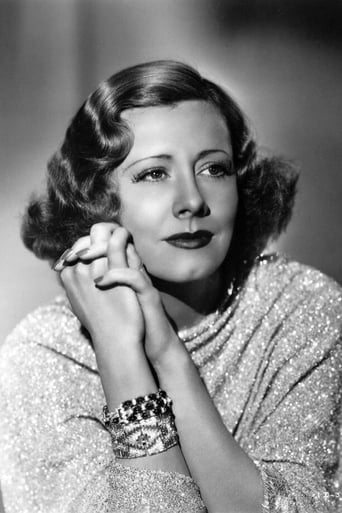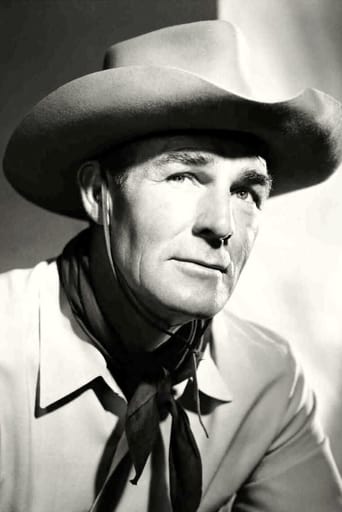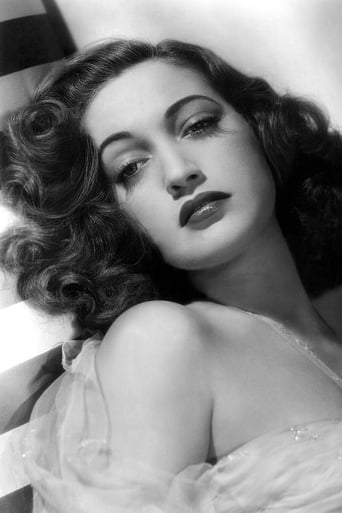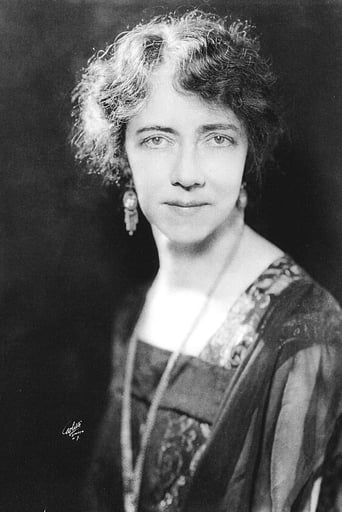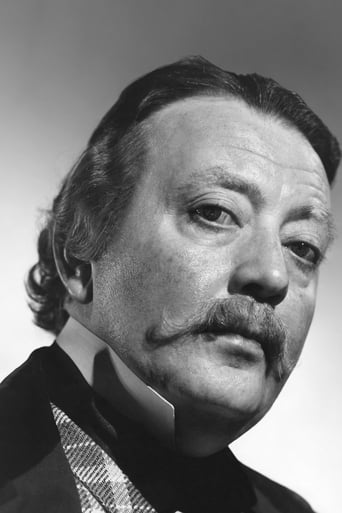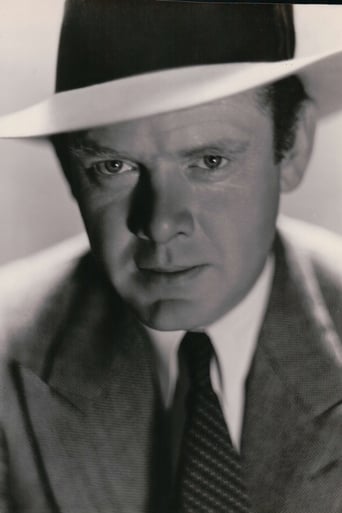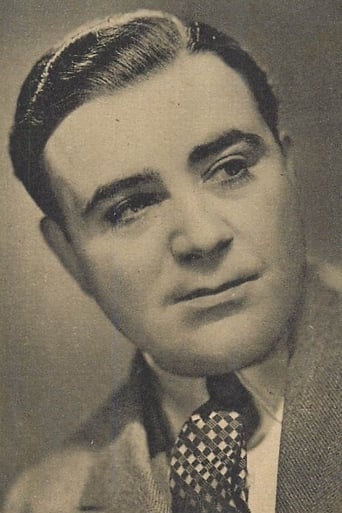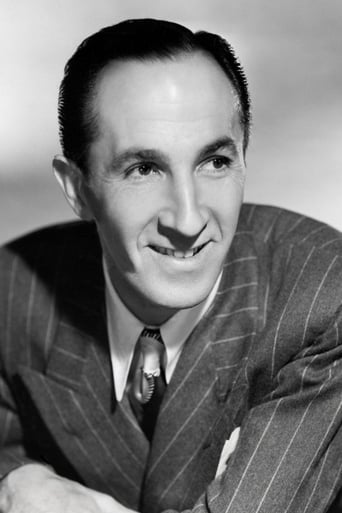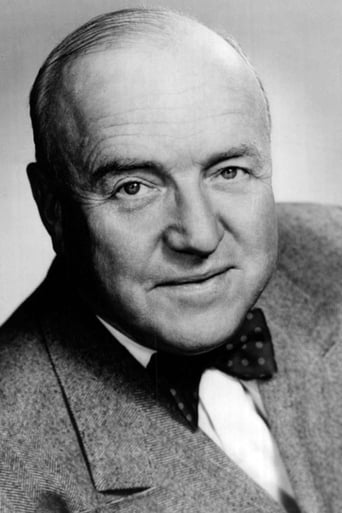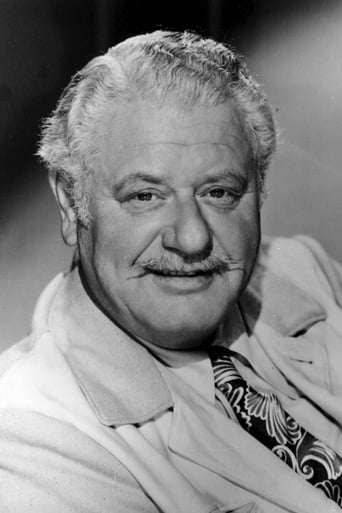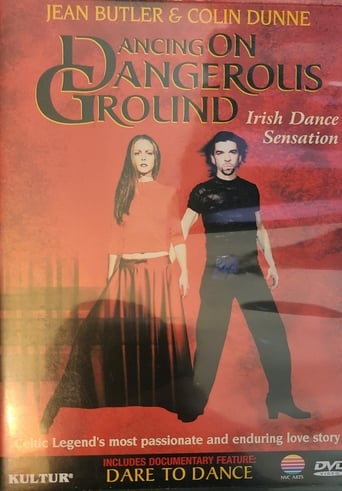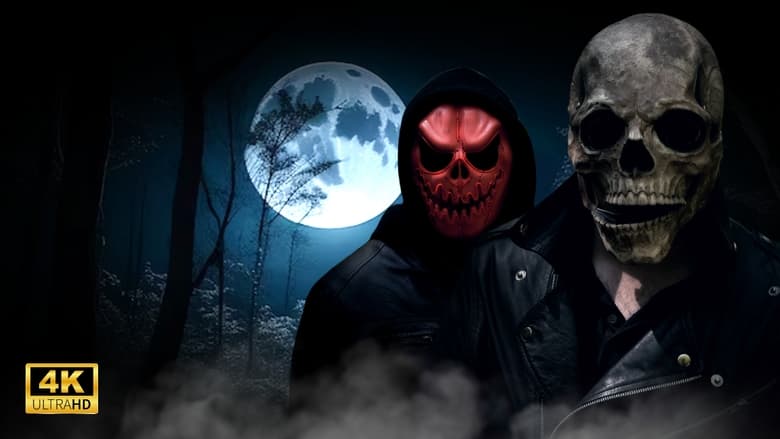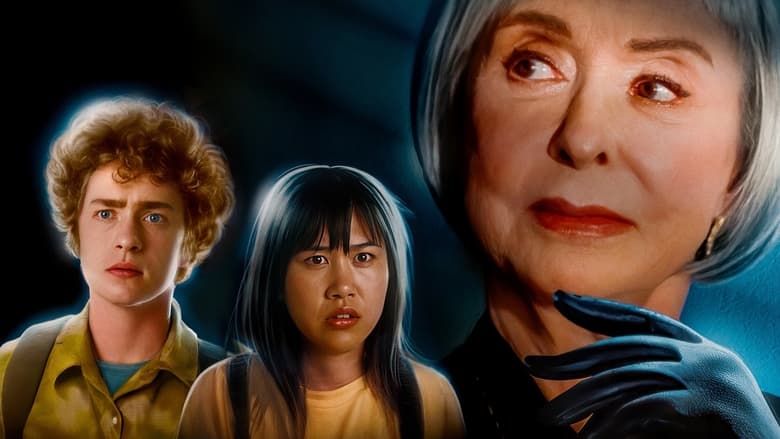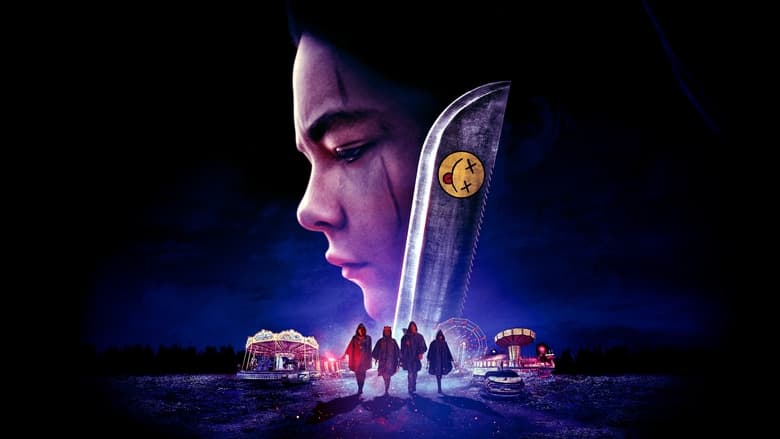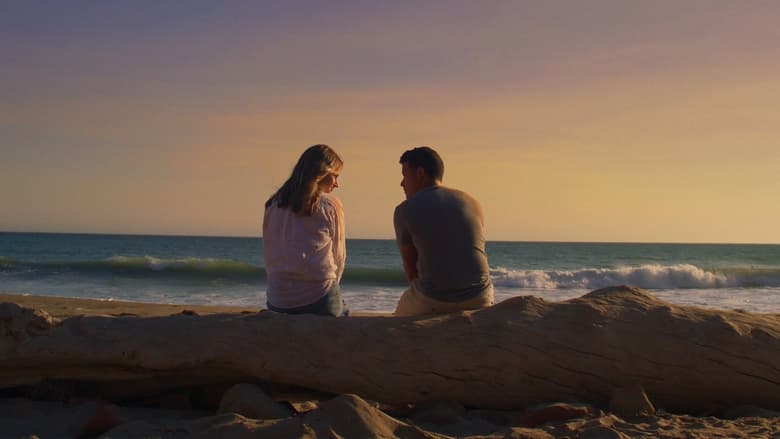The setting is a small town in 1870s Pennsylvania. Sally Waterson and her father have stopped in town with their traveling medicine show, but when their wagon catches fire, they find themselves stranded. They're taken in by Mrs. Cortlandt and her grandson, Peter, who is trying to set up a pipeline that will supply oil throughout the state. Sally and Peter soon fall in love and marry. Neither their marriage nor Peter's pipe dreams flow too smoothly.


Similar titles
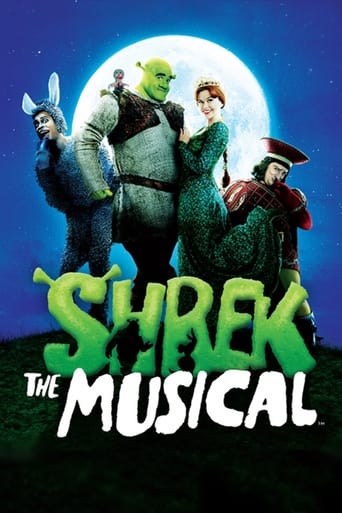

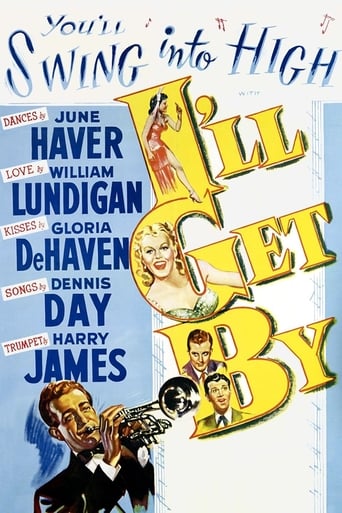

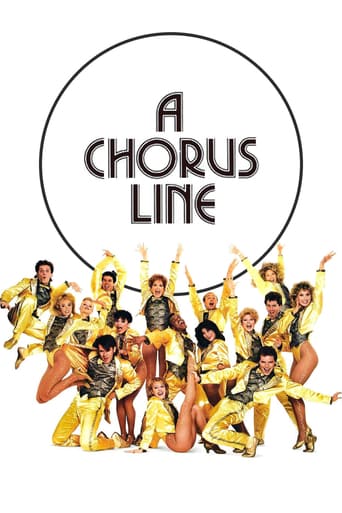
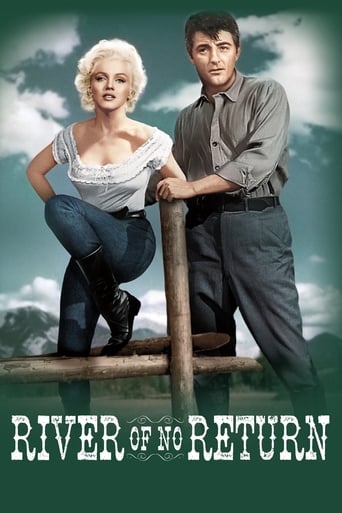
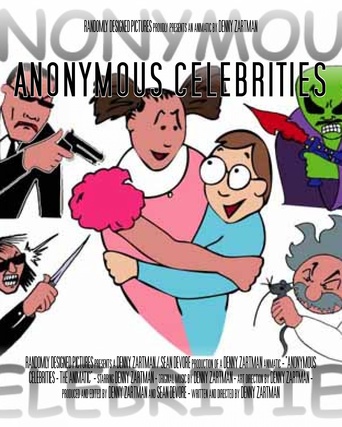
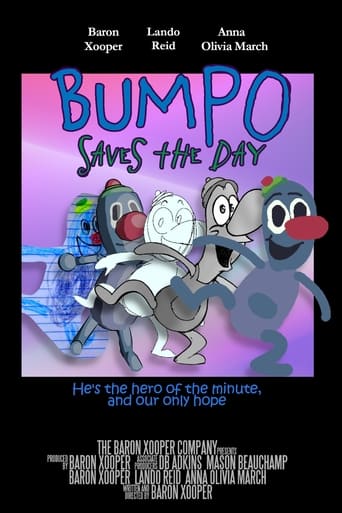
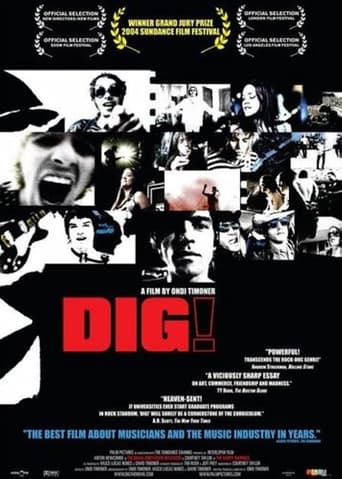
Reviews
Oscar Hammerstein II and Jerome Kern had already made theatre history with "Show Boat," a deathless example of American Theatre, which is still best preserved by Universal's 1935 production, directed by James Whale (now remembered for "Frankenstein"), a wonderful movie that is also the most perfect representation of Irene Dunne, who is amazing in the role of Magnolia. Every time I watch it, I am blown away by the work of the entire cast, which includes many of the staples of the American stage.The following year, Paramount hired Kern and Hammerstein to write them a movie, and indeed, the pair came through, writing some great songs for Dunne to sing, and, on the part of Hammerstein, coming up with a script that can't help but remind the literate of "Oklahoma!" in many ways. It also generated two of Kern's most lovely songs: "Can I Forget You?" and the perennial favorite--of singers if not of audiences--"The Folks Who Live On the Hill".This show is interesting in many ways: one, it takes Dunne back to an earlier time--the 'teens of the twentieth century--in her interpretations, especially of "The Folks Who Live on the Hill," where she elaborately rolls her "r's" and sings in an elaborately formalized manner. It also fails to provide her with an adequate male singing lead, which she certainly had in Allan Jones with "Show Boat."The story presages the ideas that Hammerstein brought to full bloom in his other masterpiece, "Oklahoma" (Masterpiece number one being "Show Boat".) The archetypes are all there: Irene Dunne as Laurie/Magnolia, Randy Scott as Curly (not the weak male lead required by Edna Ferber), Dorothy Lamour as a somewhat muted Ado Annie/Queenie, Charles Bickford as Jud/Frank, Dorothy Patterson as a peppy Aunt Eller/Parthy, Raymond Walburn as a textually removed but otherwise enjoyable Ali Hakim/Captain Andy (although what could go wrong with Charles Winninger in that role?). Add to that Alan Hale as the supremely evil railroad magnate--any comparison would be a stretch, and this is a perfect example of playing against type for Hale, the consummate cheerful sidekick--and you have a delightful Hollywood ensemble company, and I have neglected to mention the beloved Ben Blue, who probably parallels Rubber Face/Will Parker.Talk to me sometime about my ideas anent archetypes: it's for sure--at least as far as I'm concerned--that Hammerstein had some definite "slots" in his scripts not only for particular actors but also for particular characters, and you can find them in subsequent hits like "South Pacific" and "The Sound of Music."My print of "High, Wide and Handsome" was evidently videotaped off a television broadcast: the result is a posterized version whose commercial breaks were edited out; nonetheless, it is a pretty good representation of the film; I don't think that much was missing. Rouben Mamoulian, one of the great directors of film ("Love Me Tonight") and Broadway ("Carousel," need I say more?) added many of his signature effects to this movie, which also may have had some influence from John Ford, but the latter is something I'm flashing on, and I'm not sure what! Please see this sui generis film: it's not a copy of a Broadway hit; it was designed, as were many of Mamoulian's productions, as a film to be appreciated on its own.Paramount should re-release this movie, in the most pristine version available. There are aspects of it that are antiquated, especially since two years later Hollywood brought us "Gone With the Wind" and "The Wizard of Oz," with all their technical accomplishments; but as a musical film achievement, there is a distinctive place for "High, Wide, and Handsome."
Irene Dunne had the good fortune in her singing films to have one of the greatest of American composers writing for her. In her career she did the lead roles in such Jerome Kern classics as Showboat, Roberta, and Sweet Adeline. And also she Kern write songs for the screen for her in Joy of Living and this film High Wide and Handsome. She was for a while known as the Jerome Kern girl of the screen.For reasons I don't understand, except for Showboat she was not given a singing leading man. The story lines were rewritten to give her all the good songs and the leading man none. Not that Donald Woods in Sweet Adeline or Douglas Fairbanks, Jr. in Joy of Living or Randolph Scott in Roberta and High Wide and Handsome had any ambitions to sing, but it might have been nice to have her teamed with someone like Allan Jones again as she was in Showboat.High Wide and Handsome is set in western Pennsylvania just after Edwin L. Drake invented the first practical oil derrick to drill for the stuff. Up to that time oil was considered a nuisance at best, a positive calamity at worst for some poor farmer who had the stuff oozing through to his soil. Randolph Scott is such a farmer who has the idea of marketing for heating fuel. Others agree with him including Alan Hale who is in a part normally reserved for Edward Arnold. He's the boss of the railroad and who would be shipping the stuff and at the rate he determines, but him only. Not beaten Scott conceives the idea of the first oil pipeline and then its a fight to the finish with the Hale and the railroad. By the way in real life this is how John D. Rockefeller cornered the oil market and gave the Rockefeller family the wealth it enjoys today.Irene Dunne is in a medicine show that breaks down and she, Raymond Walburn and William Frawley are given shelter by Scott and his grandmother Elizabeth Patterson. Of course the usual boy/girl stuff happens.Scott's an earnest of guy, but a bit of a prude as well. Later on when Dunne aids another entertainer in trouble, Dorothy Lamour, Scott and she break up when he finds the two of them trying to put over an act in a saloon to get her hired.Two very big songs for Jerome Kern and Oscar Hammerstein, II came out of High Wide and Handsome both sung by Dunne, Can I Forget You and The Folks Who Live On The Hill. Again this was a case of one hand washing the other as Paramount no doubt convinced the leading singer in America who by no coincidence was a Paramount contact player to record them and plug them on his radio show. Bing Crosby's records of them are classic and they sold a few platters back in the day. In fact why didn't they have Bing in this film? It certainly had more of a budget than the musicals Paramount was giving him. Other villains in High Wide and Handsome are Charles Bickford and Irving Pichel. Bickford is just a plug ugly who does Hale's dirty work and probably would pay Hale to do it for him as he and Scott hate each other and that's made clear right at the beginning of the film. Irving Pichel plays a strange Puritan type individual, self appointed keeper of the community morals. His was a strangely underdeveloped character in the script that Oscar Hammerstein, II wrote.Rouben Mamoulian who directed his fair share of musicals on screen and on the stage did a good job with his cast. And you can never go wrong listening and singing Jerome Kern's wonderful songs.
I saw this movie at the Belmont theater in Nashville, TN when I was 5 or six years old. I have been looking for this movie for years. The only thing I could remember was the song, not the movie title, the composer, the actors: nothing but the song and that it came from a movie. Only tonight, 22 April 2004, did I learn the name of the movie. If anyone could tell me how I could get a copy of this movie I would be deeply grateful. Thank you. I have three versions of the song: by Bing Crosby recorded in 1937, by Arthur Tracy, The Street Singer, and by Andy Williams. None of the albums credit the movie or the composer or lyricist. Any information of other renditions would also be appreciated. NEW UPDATE: I now have a complete VHS version of this movie. I would like to thank all of you who helped me in this endeavor. If anyone would like a copy, please contact me and I will be happy to help you also.
HIGH, WIDE AND HANDSOME (Paramount, 1937), directed by Rouben Mamoulian, is an underrated musical-drama set in the great outdoors of old Pennsylvania, circa the 1850s. Done in elaborate style, it stars Irene Dunne, following her recent success to the 1936 screen version of SHOW BOAT (Universal). Currently riding high and wide with her brief cinematic period in movie musicals (1935-1938) before focusing more on comedy and dramas, Dunne is cast opposite the tall and rugged Randolph Scott for the second time, the first being ROBERTA (RKO Radio, 1935) opposite Fred Astaire and Ginger Rogers. With a handful of contemporary song and dance, college, and backstage musicals hitting the theaters during this period, HIGH, WIDE AND HANDSOME (is the title pertaining to Randolph Scott or the scenery of old Pennsylvania?) takes a different turn in locale, combining outdoorsy western scenery with songs that has been said to have been an inspiration to the highly popular Rodgers and Hammerstein Broadway 1943 musical, OKLAHOMA, and others like it.The story begins with Sally Watterson (Irene Dunne), a young girl traveling with her medicine sideshow father named "Doc" (Raymond Walburn), singing the title song as they settle in a western Pennsylvania town. As "Doc" tries selling some medicine bottles to his patrons, which proves to be a fraud by spectator Peter Cortlandt (Randolph Scott), a fight ensues amongst the crowd, damaging their wagon. Being given the hospitality of her home by Peter's grandmother (Elizabeth Patterson), the stranded Sally earns her keep by helping with the farm animals, and soon gets to know and love Peter, a rugged oil prospector, whom she eventually marries. Their marriage, at first, is a happy union, until Peter neglects his wife in favor of keeping his promise with the neighboring farmers by banding together in laying oil pipelines in order to prevent Red Scanlon (Charles Bickford), a corrupt railroad president, from monopolizing the industry. After Sally is found entertaining on top of the table in the barroom with Molly (Dorothy Lamour), a saloon girl she and Peter had earlier rescued from a lynch mob, the couple find themselves in an argument which sends Sally to leave her husband and return to life entertaining in the passing circus show and to her father, while Peter tries to fulfill his pipeline dream, which, at the present time, proves to be more important than trying to find Sally and resolve matters. The elaborate and well staged sequence with thousands of prospectors racing against time to get the gigantic oil pipeline finished on schedule is almost similar to King Vidor's conclusion of OUR DAILY BREAD (1934) where the farmhands are seen rushing to ditch a waterway in order to save their dying crops, but with this production, an added bonus of rugged fighting scenes and one near miss scene adding to the suspense in which the unconscious Scott is nearly crushed by a falling pipe that lands inches from his head. Whew!Almost forgotten today and rarely seen in recent years, HIGH, WIDE AND HANDSOME has its share of good tunes, with music and lyrics by Oscar Hammerstein II and Jerome Kern, including: "High, Wide and Handsome," "The Simple Maiden," "Can I Forget You?" (all sung by Irene Dunne); "Will You Marry Me Tomorrow, Maria?" (sung by William Frawley); "The Folks Who Live on the Hill" (sung by Irene Dunne); "The Things I Want" (sung by Dorothy Lamour); "Allegheny Al" (sung by Dunne and Lamour) and "Can I Forget You?" (reprise by Dunne). Of the songs, "The Folks Who Live on the Hill," sung by Irene Dunne wearing her old-fashioned wedding gown, comes off best and memorably, as she sings it to her new husband, Peter (Scott) after showing her the dwelling they are to live. Another memorable moment is seeing William Frawley (years before his "I Love Lucy" TV series days in the 1950s) in full voice singing "Will You Marry Me Tomorrow" during a ceremony. While Irene Dunne is no Jeanette MacDonald or Grace Moore when it comes to vocalizing, many forget how well she singing delivery is, and she does it quite well, but unfortunately, on the whole, the songs did not become as immortal as the other Hammerstein and Kern scores.In the supporting cast are Alan Hale as Walt Brennan, the head of the transportation syndicate; Akim Tamiroff as the foreign gambler, Joe Varese; Irving Pichel as Mr. Stark; Lucien Littlefield, Purnell B. Pratt, and some light "comedy relief" supplied by Ben Blue playing Zeke, a hired hand. Raymond Walburn, a fine character actor appearing here as Irene Dunne's father, performs his task well, almost as if this role were intended with W.C. Fields in mind, especially with similarities in his medicine show man who tries to defraud his public with phony medicine bottles, etc.Running ten minutes short of two hours, HIGH, WIDE AND HANDSOME is entertaining, quite original for its time, but sadly, a neglected item. A lot of effort went into this nostalgic production, and it shows. The only thing missing, and a real oversight, is Technicolor. Around this time, Paramount produced some fine Technicolor outdoors films, notably THE TRAIL OF THE LONESOME PINE (1936) with Sylvia Sidney, and EBB TIDE (1937) with Frances Farmer. How cinematic this handsome film would have looked in color. But overlooking this minor flaw, it's a movie worth seeing through once, and after its THE END title and list of actors and their roles (and underscoring to "The Folks Who Live on the Hill") before the final fadeout, it may make one wonder why this is among the rarely-seen western-type musicals gems of the "golden age of Hollywood" period. (***1/2)
